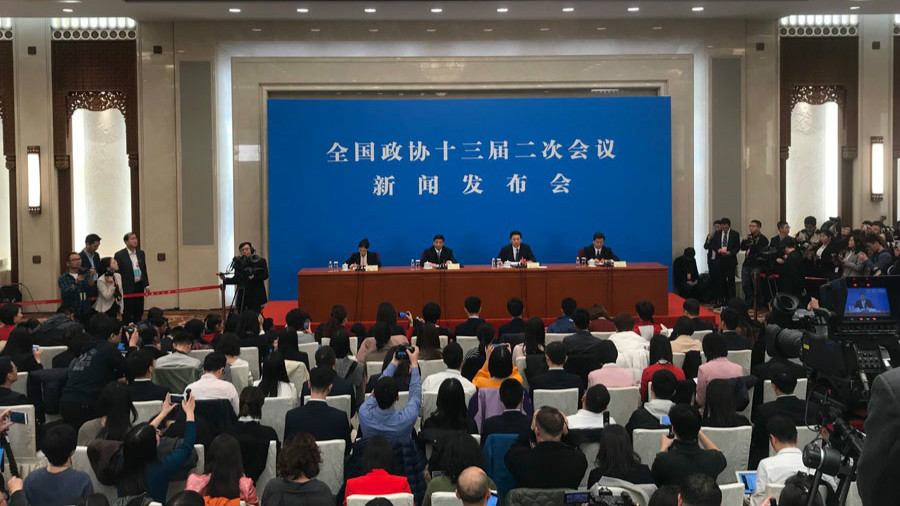More and more villagers in Midong district, Urumqi, capital of northwest China’s Xinjiang Uygur Autonomous Region, have learned skills, broadened their horizons and increased their income by working in factories and workshops located near their homes, Xinjiangnet.com.cn reported.
As an important agricultural district in Urumqi, Midong district has made continuous efforts to attract investment from agricultural and sideline product processing companies and has encouraged them to build factories and workshops in the production areas for relevant raw materials. These efforts have not only improved the added value of agricultural and sideline products, but has also promoted the employment of local people.
“Since our factory is located in the village, we should certainly benefit local villagers first.”
Zeng Lili, a 34-year-old resident of Jianliang village, Changshanzi township, Midong district, has worked for Urumqi Zhongda Jiarui Industry and Trade Co., Ltd., a company specialized in the deep processing of agricultural and sideline products, for 12 years. She is now the team leader of a production line and earns more than 6,000 yuan ($896.4) a month.
“The factory is right in our village, which makes it very convenient to go to work. As I can not only make money, but also can take care of my family. I certainly don’t want to work in other places away from home,” said Zeng. It takes her about 10 minutes to commute from her home to work by electric scooter.
Besides 40 regular staff members, the company has also hired nearly 100 casual workers. This year, the company plans to build three new production lines using new technologies with a total investment of 10 million yuan, which will create more jobs for local people, according to Ma Hongwei, executive deputy general manager of the company.
“Since our factory is located in the village, and our primary business is the deep processing of agricultural and sideline products, we should certainly benefit local villagers first,” Ma said. In addition to continuing to target local villagers for recruitment, the company will also hire college graduates who have returned to their hometown for employment while training a number of them in the application of new technologies, according to Ma.
“I can work in the factory and tend to crops in my spare time.”
A pickle production company located in Xiadacaotan village, Gumudi township, Midong district, recently set up a new production line for quick-frozen vegetable production and plans to recruit more local workers.
The company processes more than 1,000 tonnes of vegetables a year, and all of its raw vegetables come from local growers. In Erwan village of Changshanzi township, a major cowpea production area in Urumqi, more than 40 cowpea growers have signed contracts to supply cowpeas to the company. According to their contracts, growers can sell their cowpeas at the market when the market price is high or sell them to the company at a pre-agreed price when the market price is low.
The arrangement not only guarantees benefits for growers, but ensures the supply of raw materials for the company, said Liu Zilin, an executive of the company. Liu has also encouraged 20 of his local employees to cooperate with the company by growing vegetables.
“I can work in the factory and tend to crops in my spare time. I earn an average monthly salary of 6,000 yuan at the factory, and my family also supplies it with raw materials. It feels so good that I can earn a salary without leaving my village now,” said Zhu Yanxia, a 47-year-old employee at the company.
Better skills, wider horizons
There are 75 local food processing companies and workshops in Midong district. They not only use local agricultural and sideline products as raw materials, but have meanwhile trained a large number of local farmers to develop management capabilities and technical skills.
Ma Jinyan, an executive of a condiment factory located in Liuzimiao village, Yangmaogong township, Midong district, intends to have two employees at the factory receive training in e-commerce skills so as to become livestreamers.
Benefitting from the local government’s efforts to support entrepreneurship, Ma has learned how to sell products via livestreaming and has entered into cooperation with local Internet influencers, in this way effectively increasing sales at the factory.
In order to further tap into new business forms and models, Ma decided to select several people from the 23 local employees at the factory and trained them to become livestreaming hosts. These hosts will help establish a livestreaming e-commerce base in Liuzimiao village, and eventually elevate the sales of the factory to a higher level while promoting the sale of agricultural and sideline products at the village, according to Ma.
Ma Xueni, a 42-year-old local villager who has worked for the factory for six years, is one of the key candidates for the new position. She enjoys a stable income and has been promoted to a managerial role, according to Ma Xueni, who stressed that she has learned a lot of managerial knowledge at the factory.
“I will work hard to acquire a good knowledge of e-commerce, improve my skills and broaden my horizons during the training. I will not only promote the products of my factory, but sell agricultural products on behalf of our village, such as sweet potatoes and rice, through livestreaming, so as to help more of my fellow villagers increase their income,” she said.















.jpg)









.jpg)


